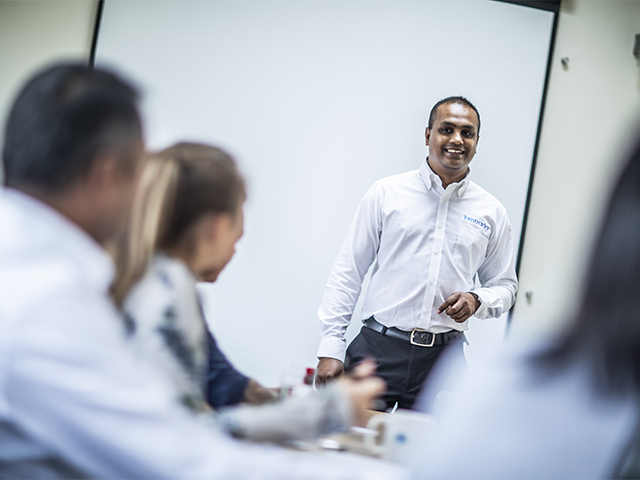
Build an effective training programme
Looking For More Information
Contact Our Team
Build an effective training programme
Investing in colleagues training and development is essential to remain competitive in today’s dynamic market. The success and growth of your organization depends on happy and motivated colleagues and training plays a role in staff continuity. Colleagues who acquire skills, gain and retain knowledge leading them to feel empowered to do their job, and as an added bonus those who feel invested in pass on these positive behaviors to customers.
Effective training programmes are built using a systematic, holistic process which meets the organizational objectives and participant expectations.
Starting a successful training programme
Phase 1- The starting point is to understand the training needs and develop learning objectives. It is important to think about what steps are required on the way. Learning objectives should define what the individual colleagues will achieve through the training and which skill gaps will be closed. At this stage it is important to start to think how you will measure the achievement of these objectives. It is also essential to look at what the business will achieve from the training for example improved processes or customer retention, and to examine if improvements in these areas can be objectively measured as well.
Phase 2 - The design and delivery of your programme will then be dependent on your objectives, your participants, your logistics and your budget…will it be face to face, or eLearning, is there internal expertise to design and deliver it or do you need to contact an external expert? Whatever your path one key rule is that the end product must be engaging to ensure that the learning is achieved, and if I is a large scale project ensure that a series of communications pre-empt the training so that people know what to expect.
Whilst design is taking place adequate time needs to also be given to planning the training schedule and communicating it. The training program is then promoted and launched. Throughout the training, participant’s progress should be monitored to ensure that the program is achieving its objectives, if it isn’t taking action promptly is essential.
Phase 3 - Once complete, it is important to review the programmes effectiveness against the measures you established at the planning phase. For task specific training it is important to measure productivity before and after training, whether that is through improved efficiency or higher sales targets being achieved.
BM TRADA provides a wide range of training courses to suit organizations of all shapes and sizes.
Please email for further information.
Find related Resources
Related Resources
Role of Training
12/07/18

